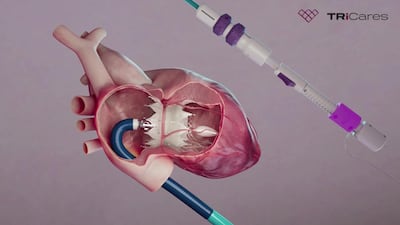Renal denervation, once thought by many to be the best hope for patients with uncontrolled hypertension, may not have a future at all. The full six-month results of SYMPLICITY HTN-3
sham-controlled data affirmed Medtronic PLC’s preliminary reports that its Symplicity catheter renal ablation system did not have a significant effect on systolic blood pressure in the trial.
Read the full article – start your free trial today!
Join thousands of industry professionals who rely on Medtech Insight for daily insights
- Start your 7-day free trial
- Explore trusted news, analysis, and insights
- Access comprehensive global coverage
- Enjoy instant access – no credit card required
Already a subscriber?






